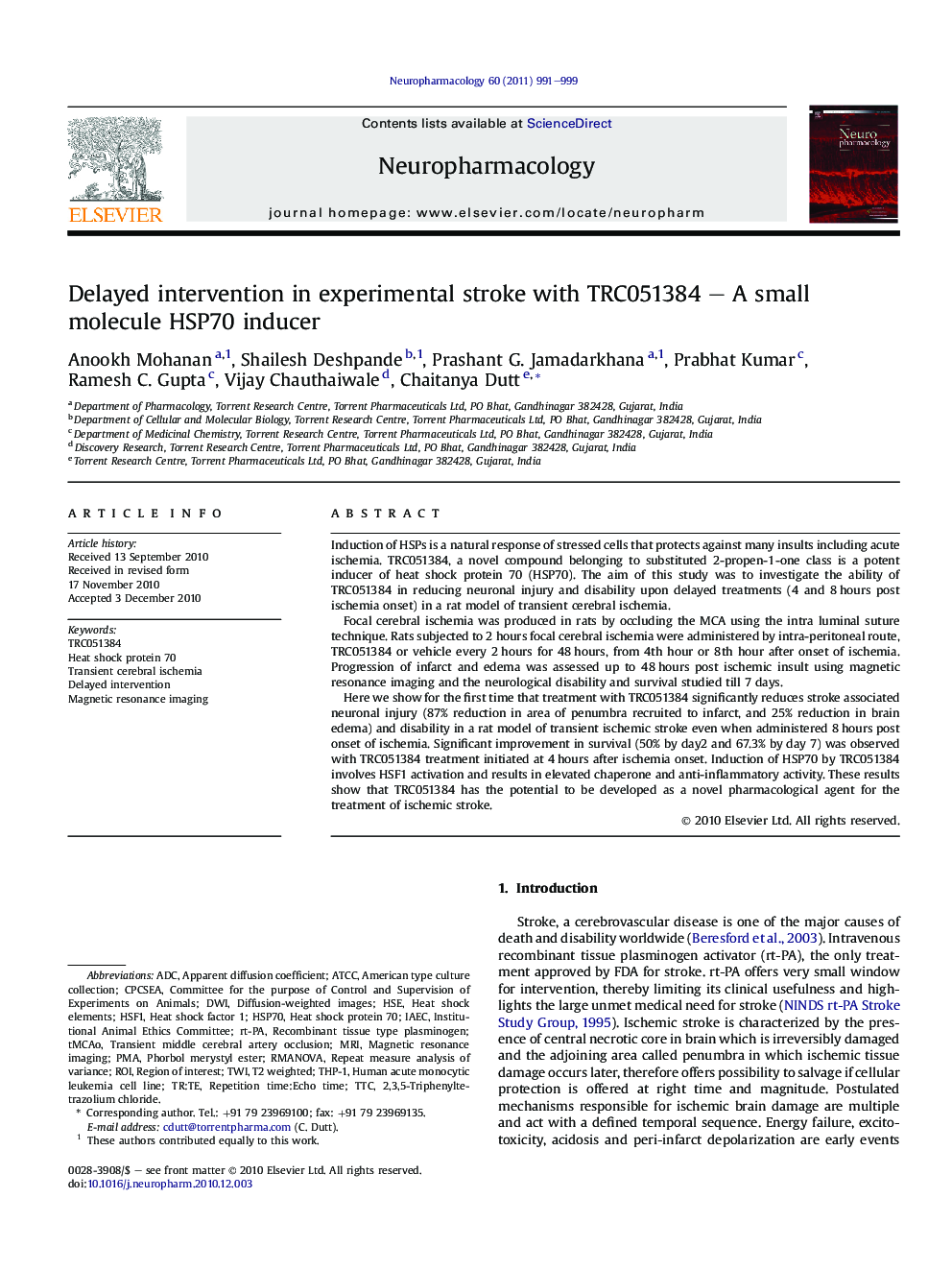| Article ID | Journal | Published Year | Pages | File Type |
|---|---|---|---|---|
| 2493988 | Neuropharmacology | 2011 | 9 Pages |
Induction of HSPs is a natural response of stressed cells that protects against many insults including acute ischemia. TRC051384, a novel compound belonging to substituted 2-propen-1-one class is a potent inducer of heat shock protein 70 (HSP70). The aim of this study was to investigate the ability of TRC051384 in reducing neuronal injury and disability upon delayed treatments (4 and 8 hours post ischemia onset) in a rat model of transient cerebral ischemia.Focal cerebral ischemia was produced in rats by occluding the MCA using the intra luminal suture technique. Rats subjected to 2 hours focal cerebral ischemia were administered by intra-peritoneal route, TRC051384 or vehicle every 2 hours for 48 hours, from 4th hour or 8th hour after onset of ischemia. Progression of infarct and edema was assessed up to 48 hours post ischemic insult using magnetic resonance imaging and the neurological disability and survival studied till 7 days.Here we show for the first time that treatment with TRC051384 significantly reduces stroke associated neuronal injury (87% reduction in area of penumbra recruited to infarct, and 25% reduction in brain edema) and disability in a rat model of transient ischemic stroke even when administered 8 hours post onset of ischemia. Significant improvement in survival (50% by day2 and 67.3% by day 7) was observed with TRC051384 treatment initiated at 4 hours after ischemia onset. Induction of HSP70 by TRC051384 involves HSF1 activation and results in elevated chaperone and anti-inflammatory activity. These results show that TRC051384 has the potential to be developed as a novel pharmacological agent for the treatment of ischemic stroke.
► This study examines the neuroprotective effect of TRC051384 on delayed treatment initiated 8 hours. ► TRC051384 is an HSP70 inducer and potent anti-inflammatory agent. ► It significantly reduces infarct size, brain edema and improves neurological deficit.
